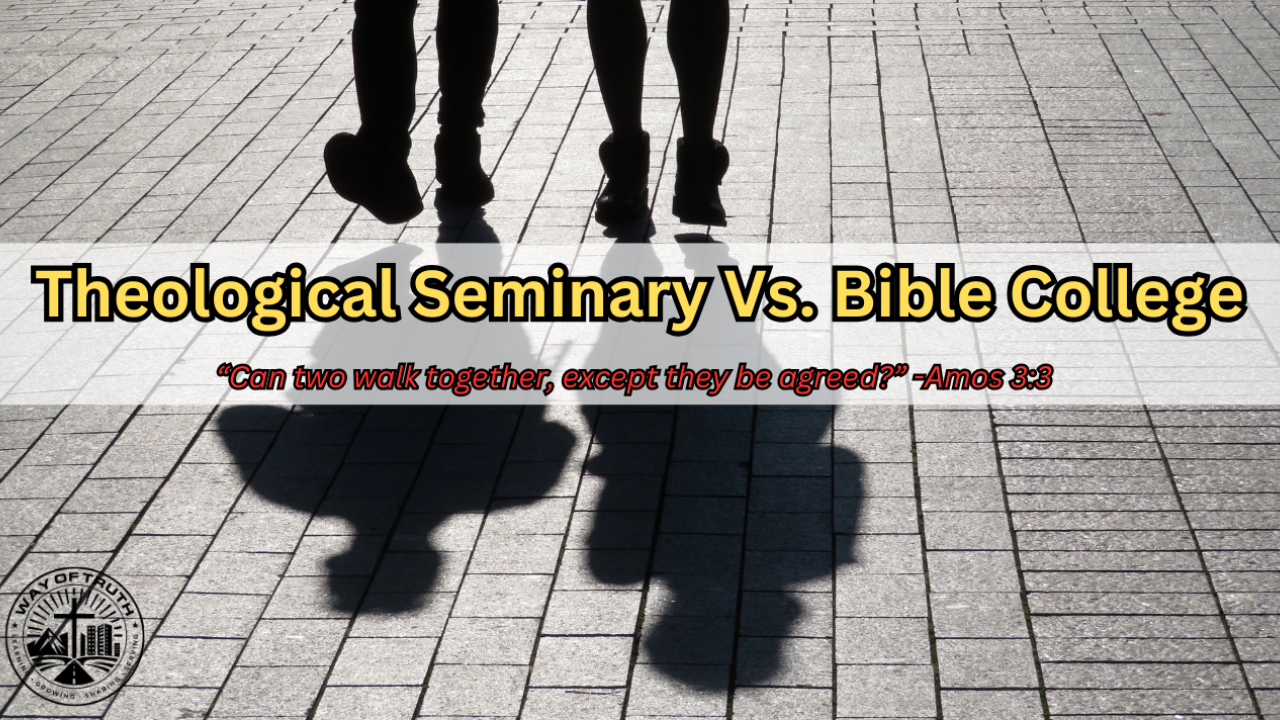Theological Seminary Vs. Bible College
Jul 15, 2024
“Can two walk together, except they be agreed?” -Amos 3:3
Some 400 years before the time of Christ, Socrates said, “the beginning of wisdom is
the definition of terms.” Wow, that is so true! Before you can begin to understand the
relationship between apparently different perspectives or positions, you must ensure
you know what the words mean.
It is curious to me how two people can be speaking the same language, using the same
words, and still be sending different messages. This phenomenon occurs because
human language is not just about the words being said; it involves tonality, body
language, context, cultural background, and personal experiences.
The case before us is to understand the difference between a Theological seminary and
a Bible college, if there is one. Both exist in our world today, but are they actually just
two ways of signifying the same thing?
First, let us consider what is meant by Theological seminary. Any quick reference to
Chatgpt on the subject will likely result in the following definition: A theological
seminary, also known as a divinity school, is a graduate school that prepares students for
Christian ministry through theological education, spiritual formation, and practical
training.
Now, we will define a Bible college using the same method. A Bible college is a Christian
university that offers specialized education in biblical studies, theology, and ministry. Bible
colleges are also known as Bible institutes, theological institutes, or theological seminaries.
A casual glance at each definition would permit any of us to assume that they are the
same thing. However, there remains a key difference to each one that is seldom
considered, and that difference is the Curriculum. Seminaries tend to focus more on
developing students' understanding of theology and biblical studies, while Bible
colleges provide more practical training in ministry and Christian education. Both
strategies play an important role in the formation of a well-rounded minister, but
rarely do we find graduates having degrees from both learning models. You might say
that a seminary is heavy on the biblical education and light on the ministerial
application, while the Bible college is lighter on the biblical education, but heavy on
the ministerial application. Of course, this assessment is admittedly a generalization
and is not intended to be a criticism of either institution, but rather a simple
observation.
What is the point of this observation? Well, when deciding what training model to
invest your time, energy, and financial resources that will provide you the greatest
foundational return, consider the organization’s emphasis on both the depth of
biblical instruction and the breadth of ministerial application. It is rare to find one
institution that pays equal focus to both; therefore, you might find yourself in a
dilemma as to which strategy you should invest in first. One will give you “what” you
need to know, while the other will provide you with the “how” to do what you know.
Start with the “what” and then explore the “how.” The world is filled with too many
who know exactly “how” to grow a ministry, but sadly they do not know “what” they
are talking about when it comes to faith. Remember, the quality of a biblical education
must go in before the name minister or pastor goes on.

